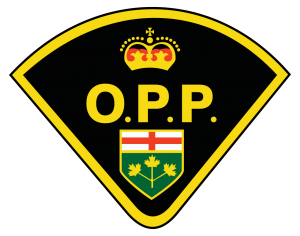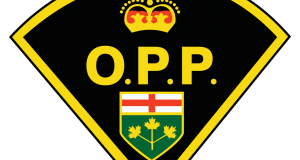Oct 30, 2017 @ 14:50
 On October 27, 2017, members of the East Algoma Ontario Provincial Police (OPP) Detachment received over 20 phone calls, four walk-in complaints and over the weekend there were seven voice mails left at the Detachment with reports of the Canada Revenue Agency (CRA) scam in the City of Elliot Lake where individuals received a recording with a threatening message indicating that a lawsuit has been filed against them regarding unpaid taxes to the CRA and if they did not comply an arrest warrant would be issued.
On October 27, 2017, members of the East Algoma Ontario Provincial Police (OPP) Detachment received over 20 phone calls, four walk-in complaints and over the weekend there were seven voice mails left at the Detachment with reports of the Canada Revenue Agency (CRA) scam in the City of Elliot Lake where individuals received a recording with a threatening message indicating that a lawsuit has been filed against them regarding unpaid taxes to the CRA and if they did not comply an arrest warrant would be issued.
Two prominent telephone numbers that were displayed on local resident’s phones were: 1-613-499-9818 and 1-613-665-0999. Fortunately, Elliot Lake residents who reported these incidents did not fall prey to this scam.
In the CRA scam, the criminals extort money from their victims by telephone, mail, text message or email, a fraudulent communication that claims to be from the Canada Revenue Agency requesting personal information such as a social insurance number, credit card number, bank account number, or passport number. Fraudsters impersonate the real CRA by telephone or by email. Fraudsters are either phishing for your identification or asking that outstanding taxes be paid by a money service business or by pre-paid debit/credit cards. They may insist that this personal information is needed so that the taxpayer can receive a refund or a benefit payment. Cases of fraudulent communication could also involve threatening or coercive language to scare individuals into paying fictitious debt to the CRA. Other communications urge taxpayers to visit a fake CRA website where the taxpayer is then asked to verify their identity by entering personal information. These are scams and taxpayers should never respond to these fraudulent communications nor click on any of the links provided.
Here are some warning signs:
- Urgency— The scammer always makes the request sound very urgent, which may cause the victim to not verify the story.
- Fear-– The scammer plays on the victim’s emotions by generating a sense of fear. For instance they may say, “I am scared and I need help from you.”
- Secrecy-– The scammer pleads with the victim not to tell anyone about the situation, such as, “Please don’t tell Dad or Mom, they would be so mad.”
- Request for Money Transfer— Money is usually requested to be sent by a money transfer company such as Money Gram, Western Union or even through your own bank institution.
To avoid becoming a victim, police advise you to first check with another family member or trusted friend to verify the information BEFORE sending money or providing credit card information by phone or e-mail.
If you or someone you know suspect they’ve been a victim of any scam or someone posing as a Canada Revenue Agency official, hang up and contact your local police service. You can also file a complaint through the Canadian Anti-Fraud Centre 1-888-495-8501 or online at www.antifraudcentre.ca , Crime Stoppers at 1-800-222-8477 (TIPS), or online at https://www.tipsubmit.com/start.htm. You may contact The Competition Bureau of Canada 1-800-348-5358 or visit them online at www.competitionbureau.gc.ca where you can download the Canadian Edition of “The Little Black Book of Scams” your guide to protection against fraud.
- East Algoma OPP – Charges laid in collision - February 21, 2026
- Nipigon OPP – Arrest made after stopping driver for speeding - February 16, 2026
- East Algoma OPP – Arrest made after Family Dispute - February 16, 2026
 Wawa-news.com Local and Regional News
Wawa-news.com Local and Regional News
